Science and Research!
Science and Research
Human advance is accomplished through new revelations and their usage, regardless of whether it be social insurance, lodging, innovation or foundation. These advancements come to fruition for the most part through experimentation and research. The worldwide research network alludes to the group and shared research endeavors of scholastics around the globe. Truly, explore was done freely by little gatherings or people working in the more created nations. The multiplication of the web has ostensibly expanded the pace of logical revelation and further coordinated research networks the world over. More data is accessible on advanced education here, or on the worldwide ascent of training here.
I.1 The Birth of International the Research Community
Interpretations of books and the ascent of Latin as the all inclusive dialect of the scholarly world associated diverse national research networks, viably framing a universal research network. This improvement heightened and analysts progressively cooperated. The accompanying chart demonstrates the ascent in the quantity of universal congresses and global associations. The beginning of the First World War harmed this exertion impressively.
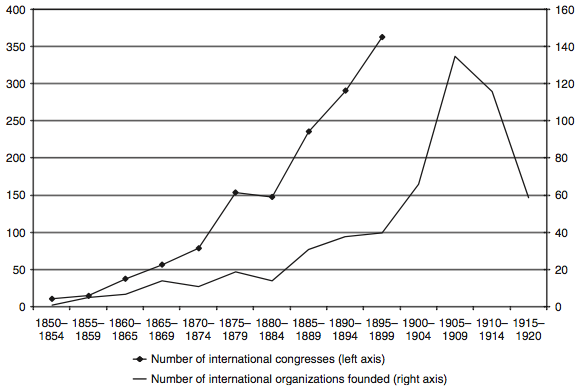
Contrasted with today, the examination network in the beginning of current science was still little and comprised for the most part of researchers from nations that modernized first. The systemisation of components in the occasional table was recommended freely by the Russian scientist Dmitri Mendeleev and the German physicist Julius Lothar Meyer in 1869 and 1870, and an ever increasing number of components were included as they were found throughout the following decades. In this manner the intermittent table appeared underneath is an intriguing method for showing which the most powerful countries were amid the late nineteenth and mid twentieth century.
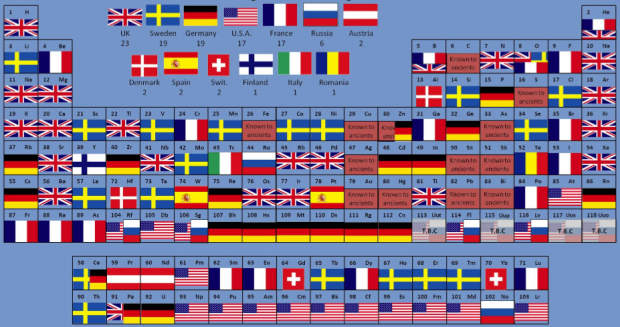
Intermittent table of components with every component as the banner of the nation where the researchers were working when they made their disclosures – Gallagher2
Occasional table of components with every component as the banner of the nation where the researchers were working when they made their revelations - Gallagher
There exist numerous cases in science of various revelation before the improvement of a global research network. The most celebrated case of which is the revelation of analytics in the seventeenth century by Isaac Newton (England) and Gottfried Wilhelm Leibniz (Germany), yet in addition apparently Pierre de Fermat. Likewise, in the eighteenth century Oxygen was autonomously found via Carl Wilhelm Scheele (Sweden, 1773), Joseph Priestley (England, 1774), and Antoine Lavoisier (France, 1777).
I.2 Nobel Prizes
A valuable method to acknowledge exactly how the universal academic network became bigger is to take a gander at the nationality of nobel prize winners.3 The accompanying diagram demonstrates the nationality of nobel prize victors by nationality since the prize was built up. The offer of nobel prizes setting off to the old European forces has declined, while the offer heading off to the US and different economies has expanded. German-conceived laureates were ahead amid the initial seventy five percent of the century; in 1976 US-conceived laureates assumed control. Note the significant contrasts to the citizenship-based positioning, reflecting mind deplete from Germany and different nations to the US (and furthermore the UK).
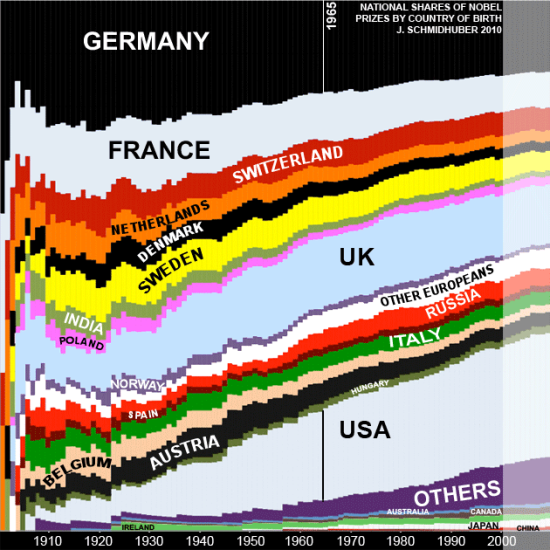
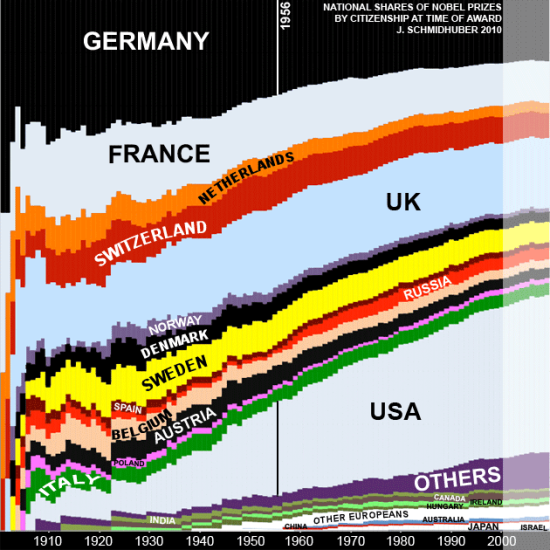
I.3 Global Research Community Today
The worldwide research network today is extensively bigger than it was in the twentieth century. The accompanying graph demonstrates the blast in the quantity of diaries in all fields of science over the previous century. Toward the beginning of the twentieth century there were under 200 diaries in each real field of study, and after 100 years, there are currently a huge number of diaries and around 1600 in geography alone!
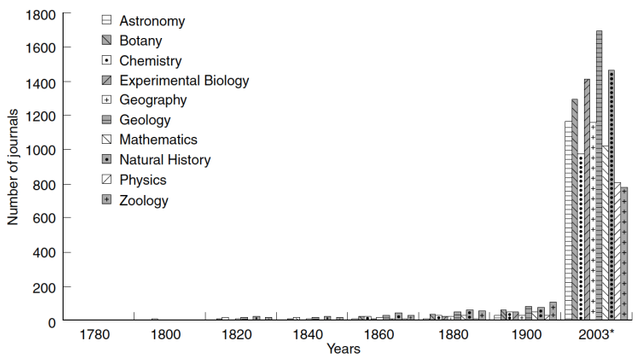
There are diaries today that are completely given to estimating the span of mainstream researchers, the global research organize and the effect of research. This field is known as scientometrics and the significant diaries are Scientometrics, Journal of the American Society for Information Science and Technology, and Journal of Informetrics.
England's Royal Society led inquire about into the creation of reference in logical diary articles to track the ongoing changes occurring. They find that the extent of reference in diaries distributed in the built up scholarly world (the US, UK, Germany, France and Japan) have been declining as more reference originate from creating economies. In the meantime, the aggregate number of references has been expanding. The report additionally finds that scholastic papers that are the result of worldwide joint effort currently make up 35% of the aggregate, contrasted with 25% just 15 years ago.6
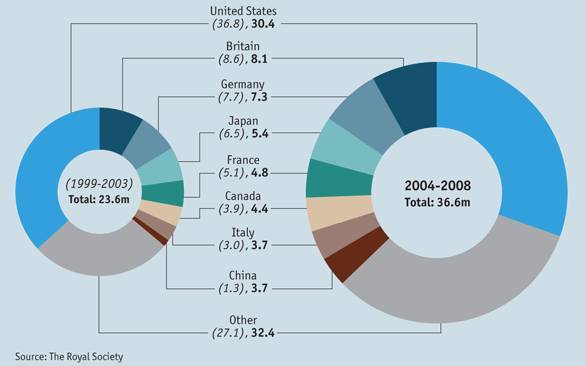
I.4 Open Access Science
From the past guide, we see that expansive parts of the world are still not some portion of the worldwide research network. These nations are for the most part poorer, and one impediment that keeps them from entering the network is the huge cost of scholastic productions. One positive pattern that continuously disposes of this snag by fundamentally decreasing the expenses of logical information is the production of open access diaries. As the accompanying chart appears, they are an extremely late advancement: in the year 2000 just 20,700 articles were distributed in open-get to diaries. This number has been rising quickly, and not a single end is to be seen: in 2011 340,000 articles
were distributed in open access diaries.
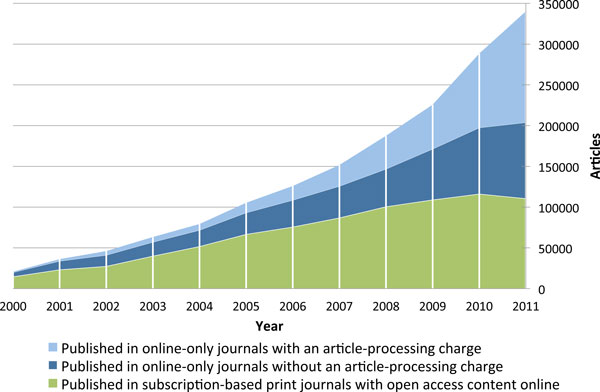
good post!!